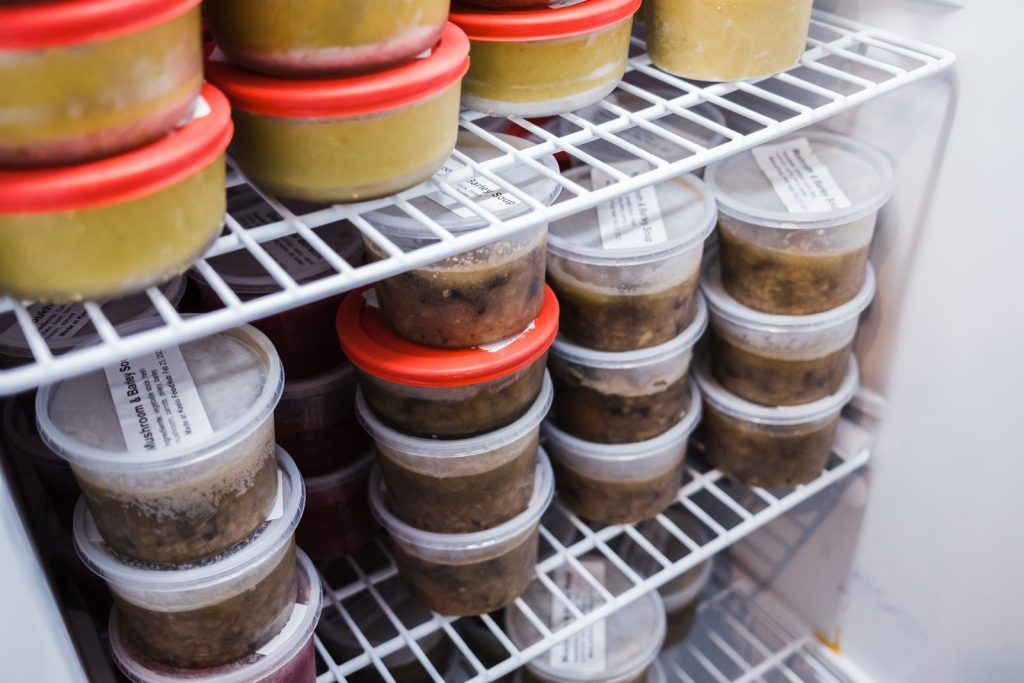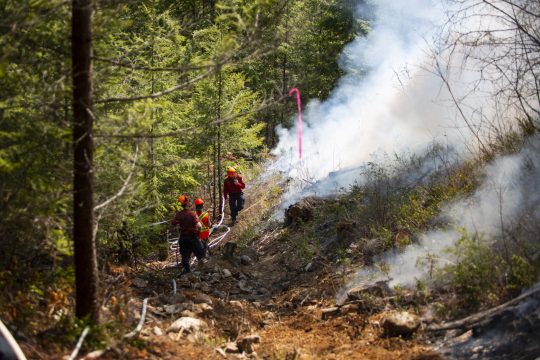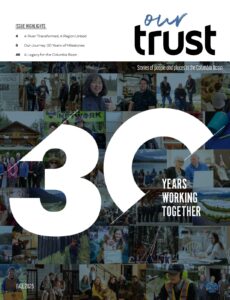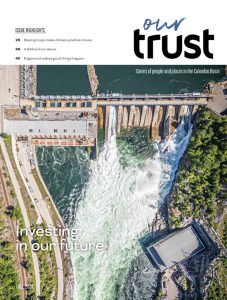Tips from Basin residents on how they are reducing their climate impact
This Earth Month, Basin residents shared with us the steps they are taking to be more climate conscious. More than 400 people responded to our questions about energy efficiency, food waste, cutting out single-use plastics, and building wildfire resilience.
We’ve collected some of the top tips from the answers shared with us to inspire us all!
We are proud to support and collaborate with the climate champions making a difference in the Basin. These responses remind us that when we act as a community, our collective impact is powerful.
Improve Energy Efficiency
We asked: How are you conserving energy? Basin residents had lots of ideas about how to improve efficiency and ultimately reduce climate impact.
- Wash clothes on cold and hang clothes to dry.
- Turn off lights and unplug appliances.
- Turn down the thermostat or install a thermostat that turns itself down.
“We hang our clothes to dry and use cold water to wash them. We turn off all lights and electronics when not in use. We also turn our thermostat down at night and during the day when we are at work.” — Jewel


Reduce Food Waste
We asked: How are you reducing food waste? Basin residents’ creativity came through with so many ideas about turning scraps into high-impact items for the kitchen or the garden.
- Meal plan and eat leftovers.
- Get creative with food scraps – like turning veggie ends into vegetable stock, cooking with lesser used produce parts (like carrot tops, kale stems or potato skins), or regrowing vegetables
- Compost.
“Leftovers, meat scraps and veggie ends go in the freezer then eventually get made into a giant pot of broth, which gets reduced, put into the dehydrator on silicone mats and turned into bullion.’’ — Cassandra



Minimize single-use plastics
We asked: How have you shifted your daily activities to rid them of single-use items? We heard from early champions of reusable bags and consumers who are careful about single-use packaging of produce and other purchases.
- Carry reusable bags.
- Use a reusable water bottle, coffee mug and containers for takeaway.
- Say no to single-use plastics like produce with extensive plastic packaging.
“Always have a shopping bag with me, refuse the plastic straws, refuse greens packaged in plastic, bring my own water bottle and cup.” — Connie



Build Wildfire Resilience
We asked: How are you preparing your home or property for wildfire season? Residents shared helpful tips for preparing to mitigate risk and being ready in the case of wildfire—both at the individual and community level.
- Remove excess debris, deadfall and ladder fuels from trees.
- Make an evacuation plan and pack a go bag.
- Organize at the neighborhood or community level through FireSmart and other avenues.
“We have an evacuation plan and 72-hour plus emergency preparedness kit. In addition, we are clearing dead grass and other dried debris.” — Jo

















